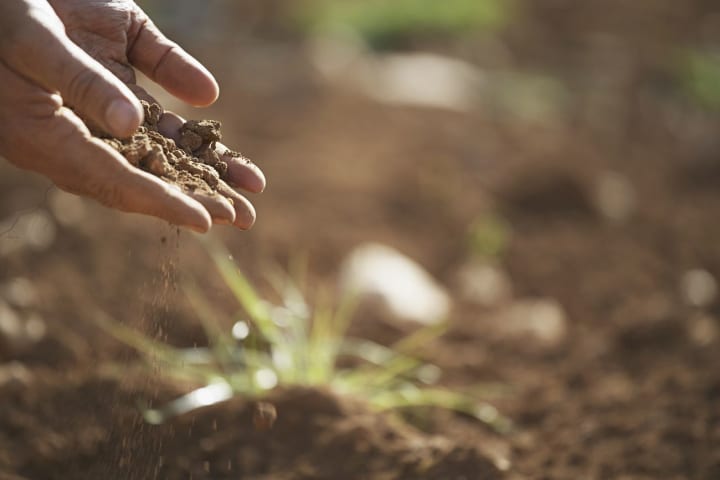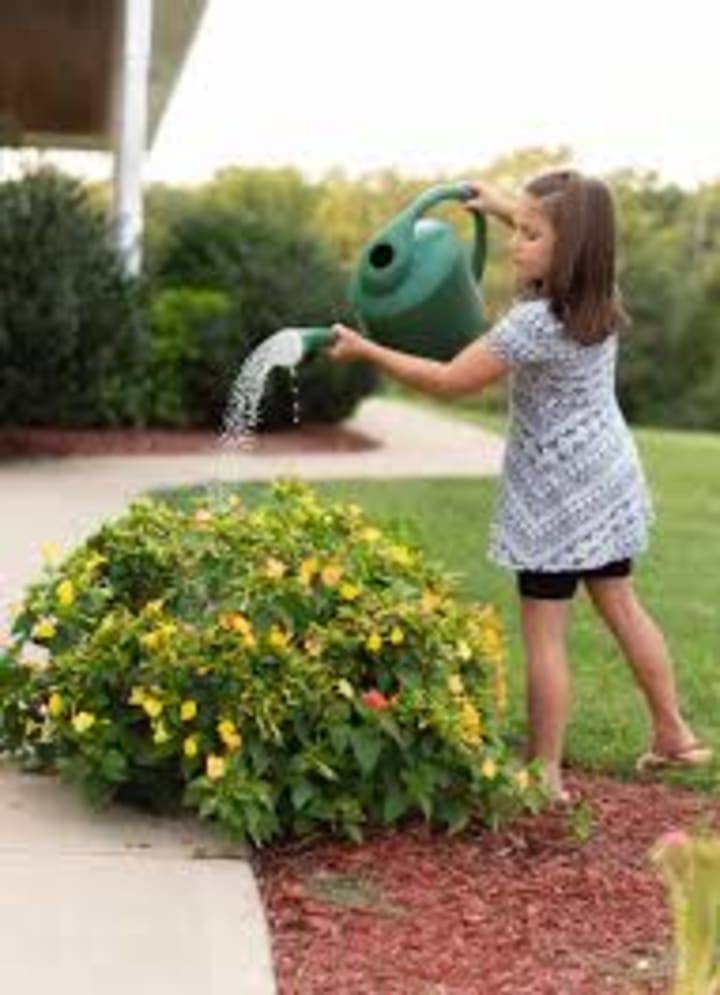Fundamentals of garden
Beauty, Food, and Enjoyment

Introduction
The fundamentals of a garden involve the basic principles of plant growth, soil health, water management, and pest control. A garden requires adequate sunlight, well-drained and nutrient-rich soil, and proper watering to support healthy plant growth. Fertilizing with a balanced fertilizer and controlling pests are also important aspects of maintaining a healthy garden. Regular maintenance tasks such as pruning, deadheading, and weeding can help keep a garden looking its best. By understanding and implementing these basic principles, anyone can create a successful garden that provides beauty and enjoyment.
1. Sunlight: Most plants need adequate sunlight to grow, so it's important to choose a location that receives enough sunlight for the type of plants you want to grow.

Sunlight is a crucial factor in gardening because it provides the energy that plants need for photosynthesis, the process by which plants convert sunlight into energy to fuel their growth. Different plants have different requirements for the amount of sunlight they need to grow, so it's important to choose plants that are well-suited to the amount of sunlight available in your garden.
Some plants, such as tomatoes and peppers, require full sun, which means they need at least six hours of direct sunlight per day. Other plants, such as lettuce and spinach, can grow in partial shade and require only a few hours of direct sunlight per day.
In addition to providing energy for photosynthesis, sunlight can also affect the temperature and moisture levels in a garden. For example, a garden that receives full sun may become hot and dry, requiring more frequent watering to keep plants healthy.
Overall, sunlight is a critical component of gardening because it directly impacts the growth and health of plants. By understanding the sunlight requirements of different plants, gardeners can create a garden that is well-suited to the available sunlight and that supports healthy plant growth.
2. Soil health: Soil is the foundation of a healthy garden. Make sure the soil is well-drained, nutrient-rich, and has the appropriate pH level for the plants you want to grow.

Soil health is a crucial factor in gardening because it provides the foundation for healthy plant growth. A healthy soil is one that is rich in nutrients, has a balanced pH, and is well-drained.
Plants require a variety of nutrients to grow, including nitrogen, phosphorus, and potassium. A healthy soil contains these nutrients in the right balance to support plant growth. In addition to these macronutrients, plants also require a variety of micronutrients, such as calcium, magnesium, and iron, that are also important for healthy growth.
The pH of soil is another important factor that can affect plant growth. Different plants prefer different pH levels, so it's important to choose plants that are well-suited to the pH of your soil. Soil pH can be adjusted through the use of soil amendments, such as lime or sulfur.
Finally, a healthy soil is one that is well-drained, allowing water to move through it easily without becoming waterlogged. This helps to prevent root rot and other problems that can occur when soil is too wet.
Overall, soil health is a critical component of gardening because it directly impacts the growth and health of plants. By understanding the nutrient needs of different plants and the pH and drainage characteristics of soil, gardeners can create a garden that is well-suited to the needs of their plants and that supports healthy growth.
3. Watering: Water is essential for plant growth, but too much or too little can be harmful. Water deeply and consistently, and avoid watering during the hottest parts of the day.

Watering is a crucial aspect of gardening as it provides plants with the necessary moisture for growth. It is important to water plants deeply and consistently while avoiding overwatering, which can lead to root rot, and watering during the hottest parts of the day.
4. Fertilization: Fertilizing your garden can help ensure that plants have the nutrients they need to grow strong and healthy. Use a balanced fertilizer and follow the instructions carefully.
5. Pest control: Garden pests can damage or kill plants, so it's important to keep an eye out for signs of infestation and take steps to control them before they get out of hand.
6. Maintenance: Regular maintenance, including pruning, deadheading, and weeding, can help keep your garden healthy and looking its best.
By following these fundamental principles, you can create a thriving garden that provides beauty, food, and enjoyment for years to come.
Regenerate response
About the Creator
Love The Green
Welcome to my page,I hope to share my experiences, insights, and knowledge with fellow nature enthusiasts.Together, we can celebrate the wonders of the natural world, and work to protect and preserve it for future generations to enjoy🌿🌲






Comments
There are no comments for this story
Be the first to respond and start the conversation.